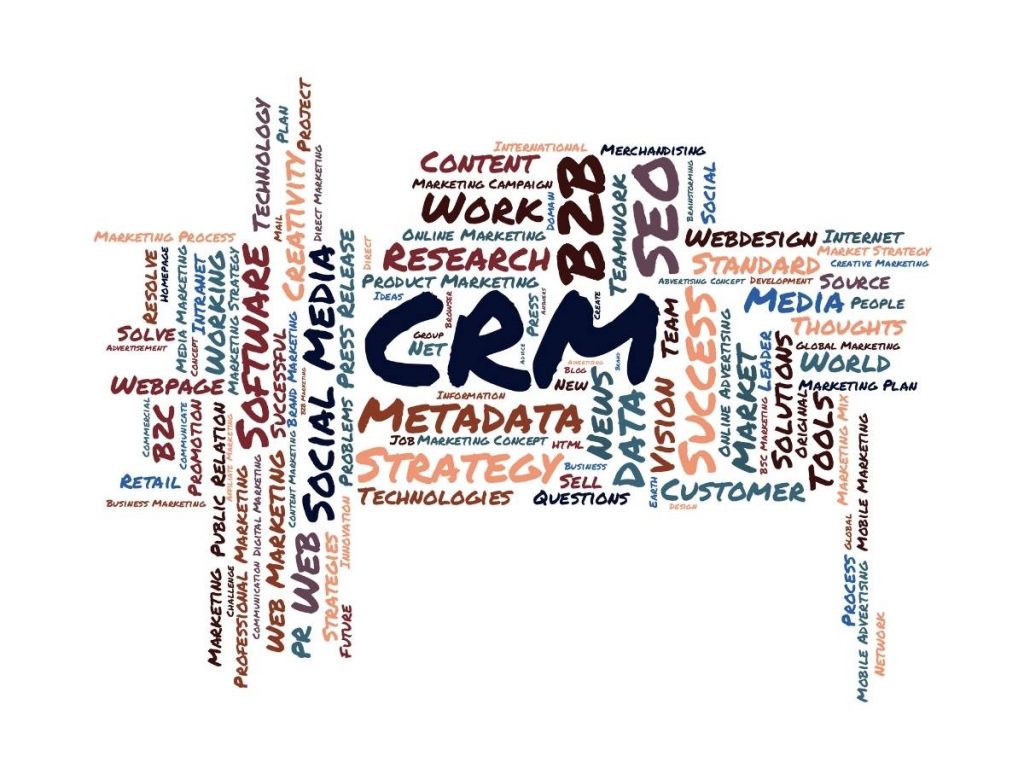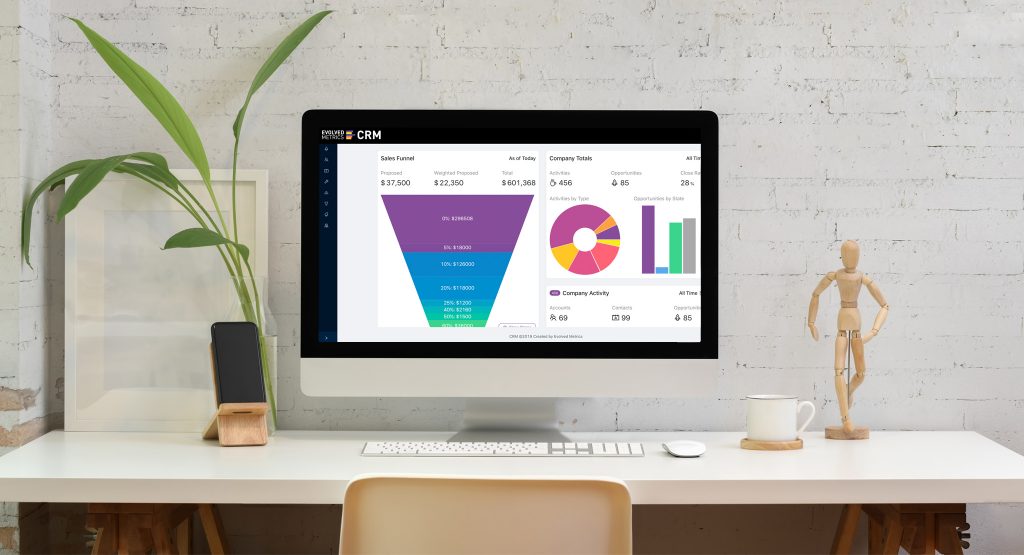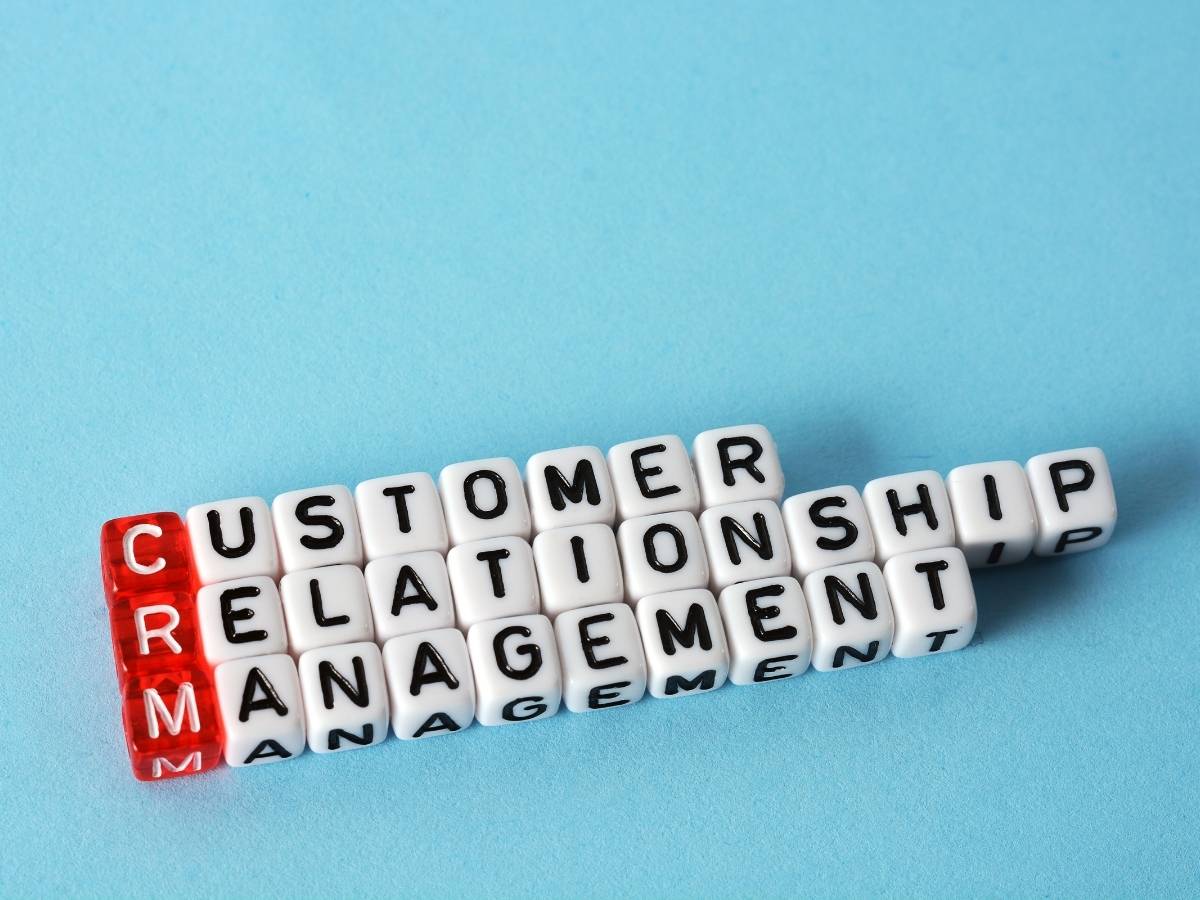You may be wondering what CRM means when it comes to business. It is a hot-button topic, but many may not understand what it is or what it does– and therefore, may not realize why they need it! Read further to understand why CRM is a great addition to your business’ toolbox.
- What is CRM?
- How Does CRM Work?
- Benefits of CRM Software for Small Businesses
- A simple-to-use CRM. Everything can be done in three clicks or less.
- Frequently Asked Questions
- What does CRM mean in business?
- Is CRM necessary for all businesses?
- What is CRM strategy?
- How can CRM help your business?
- Why is CRM important to business success?
- Can you give me an example of how CRM has helped a business?
- How does a CRM help business?
- Can you use CRM for marketing?
- How is CRM helpful?
- Do Small Businesses Use CRM?
What is CRM?
When people talk about a CRM system, they are referring to customer relationship management. It is a technology system or tool that manages a business’ relationships with their customers, as well as their potential customers.
The goal of CRM is to improve business relationships. This will in turn raise company revenue and its sales teams’ efficiency. It streamlines many of the processes involved in the day-to-day life of the company and can implement a foolproof onboarding process for new clients, too, in order to keep customer satisfaction at its peak.
You may think that CRM is something that has been on the business scene for a while, especially since pleasing your customers has always been a focus of the business, but this is actually not the case. CRM is still a fairly new concept and is improving every day.
How Does CRM Work?
CRM can do a variety of things– it’s certainly no one-trick pony! When looking into implementing your own CRM system, it is important to find one with features that would work best for your business and your industry, as well as how you approach your customer relationships.
CRM typically begins by organizing customer information, such as their website, contact information, social media data, and more. It can also store more personal data such as whether the client prefers to communicate via phone or e-mail. If needed, it can work with other applications, such as surveys or virtual document signing apps, in order to make transactions easy and smooth for both you and your customers.
Your CRM can even generate insights so that you can understand your customer base comprehensively, giving you ideas on how better to appeal to them and to interact with them in your business transactions.
Some newer CRMs can even automate administrative tasks with artificial intelligence, which is a great feature for larger companies, or even small companies that still have a large client list. Data entry and lead or service case routing are some such administrative tasks. This frees up your time, as well as your employees’ time, for tasks that are more important and require more problem solving or brainpower.
Benefits of CRM Software for Small Businesses
The picture may be becoming clearer as to why CRM is such a valuable tool for business– especially for small business owners. Small businesses typically have smaller teams, hence a need for optimization from a digital source. CRM software helps small businesses to stay organized, stay functional, save money and raise revenue.
A small business is also more agile than a large business, or a more complex business operation. Small businesses can move quicker, implement faster and really start to actualize the benefits of CRM software for small businesses at a high level. From the small business owner to the newest employee as a business grows, and the business scale starts to change a CRM can significantly help with business processes and business insights. Small business owners, especially small business companies that need leads, and need to foster customers through a journey can greatly benefit from a CRM.

Customer Relationship Management and Customer Data
At the core of what a great CRM system does is customer relationship management, a CRM software or CRM tool is only as good as its customer retention, and customer satisfaction. CRM systems give your team the ability to really foster a customer relationship and help move people along a sales pipeline that, yes helps with the sales process, but more importantly builds a relationship.
A sales team or your marketing teams are definitely required to help your small business grow and get more sales. These people however often need information and ideas right at their fingertips, and the benefits of CRM system is that it is right there. All of the information is available.
Increase Efficiency
Of course, a computer can typically work faster than the average human. This is one reason that it helps to implement a CRM tool in your company. By automating certain tasks, they get done quicker, and the manpower that would be used for these tasks can instead be focused somewhere else. The CRM also has insights and information about customers readily available that employees might not have the same access to– at least, that employees cannot access as quickly.
Storing information in a central location such as CRM systems can help to boost the efficiency of the whole team, as it saves the employees time when searching for this information as well.
Save Money
By making your business more efficient, you will, of course, also save money! It will also increase your revenue once you are working at high efficiency. By centralizing everything on a specific platform, CRM makes sure that no details fall through the cracks which may affect sales or customer leads.
CRM can also centralize all communications on one platform, ensuring that communication is timely and satisfactory, leading to happy customers!
Reports
Your CRM can organize information into reports for you, which lack the biases and human errors that might come through if a human were to organize data into a report. Generating these reports also waste valuable selling time, so by simply pulling the reports from your CRM, your team’s energy can be better spent on other tasks!

A simple-to-use CRM. Everything can be done in three clicks or less.

Frequently Asked Questions
What does CRM mean in business?
CRM stands for customer relationship management. It is a tool used by many businesses to manage their relationships and interactions with both existing and potential customers. This helps them to improve their business relationships and, in turn, make more money. It also helps to increase efficiency in their teams.
Is CRM necessary for all businesses?
No, CRM is not necessary for all businesses. However, it can be very beneficial for those businesses who wish to improve their customer relationships and increase their efficiency. For businesses who wish to grow, a CRM is often essential.
What is CRM strategy?
CRM strategy is a personalized plan for your business, which is designed as a company-wide strategy. It focuses on growing revenue and profit, as well as on reducing costs and improving customer relationships by putting the customer first. Typically, businesses implement this plan with the assistance of their CRM technology system and all of the data it has collected.
Almost every business needs CRM because it is the most effective way to manage customer relationships. It helps to keep track of all interactions a company has with its customers, both current and past, and organizes this data into reports which help improve business efficiency. Additionally, a CRM system can help reduce costs and increase revenue. For these reasons and more, it is essential for any business to implement a CRM strategy.
How can CRM help your business?
A CRM system can help your business by helping you identify and add new leads quickly. It also helps to categorize them and focus on the right leads to close more deals, which makes more money for your business.
Why is CRM important to business success?
CRM helps businesses create a relationship with their customers, fostering loyalty and customer retention, and helping keep the sales team organized and efficient. Both of these increase the company’s revenue.
Additionally, CRM systems help businesses track their customer interactions and sales pipeline, so they can improve on their sales processes to make more money.
Can you give me an example of how CRM has helped a business?
One example is the company HubSpot. They use Salesforce as their CRM software. As a result, they have seen an increase in close rates because they are able to focus on the most promising leads. Additionally, they have been able to reduce their sales cycle by 50%. They attribute this success to the fact that all of their data is in one place, which makes it easy for everyone in the company to access and act upon it quickly. Finally, they are also able to better measure the success of their marketing campaigns
This is obviously a public example of a bigger company using a large piece of software to help them in their business. Evolved Metrics is a significantly easier software tool to use, and to implement especially for a small to medium-sized business that needs speed and efficiency without giving up effectiveness and results. The sales process has to increase in effectiveness in order to justify the extra time and resources going into a CRM.
One example of this is Questor Technology, and their company moving from a large-scale CRM to our solution and finding the benefits of CRM through a simpler, easier approach to implementation, navigation or the software and most importantly real people to talk to if they run into any issues.
How does a CRM help business?
CRM helps businesses by streamlining their entire sales cycle. This results in closing deals that are in the sales pipeline and helping the team reach its targets faster. CRM automates certain processes, saving the sales team time and money. It also helps to keep all customer communications in one place, so that nothing falls through the cracks.
Can you use CRM for marketing?
Yes, CRM can be used for marketing purposes. It allows you to see all interactions with customers, whether it is a phone call, an email or a meeting. This data can then be used to create targeted marketing campaigns that are more likely to succeed than those created without customer data.
How is CRM helpful?
CRM can help you by storing customer data like user behaviour, purchase records, their longevity with your business, and notes pertaining to sales interactions. You can then use these pieces of information in order to optimize your sales and marketing processes and to improve customer service across your business, team by team.
Do Small Businesses Use CRM?
Small businesses use CRM for a number of reasons, but typically it is to manage and monitor customer interactions and sales data. They also use it to keep their team organized and on track, as well as to increase efficiency in order to save money.
Additionally, small businesses can use CRM’s reporting features to get insights into their business that they would not have otherwise.
There are countless benefits of using CRM software for small businesses. In short, it helps businesses be more efficient and organized, saving both time and money.
Additionally, CRM provides valuable insights into customer behaviour which can help optimize sales and marketing processes. Lastly, happy customers are likely to return and recommend your business – something that CRM can help achieve.

